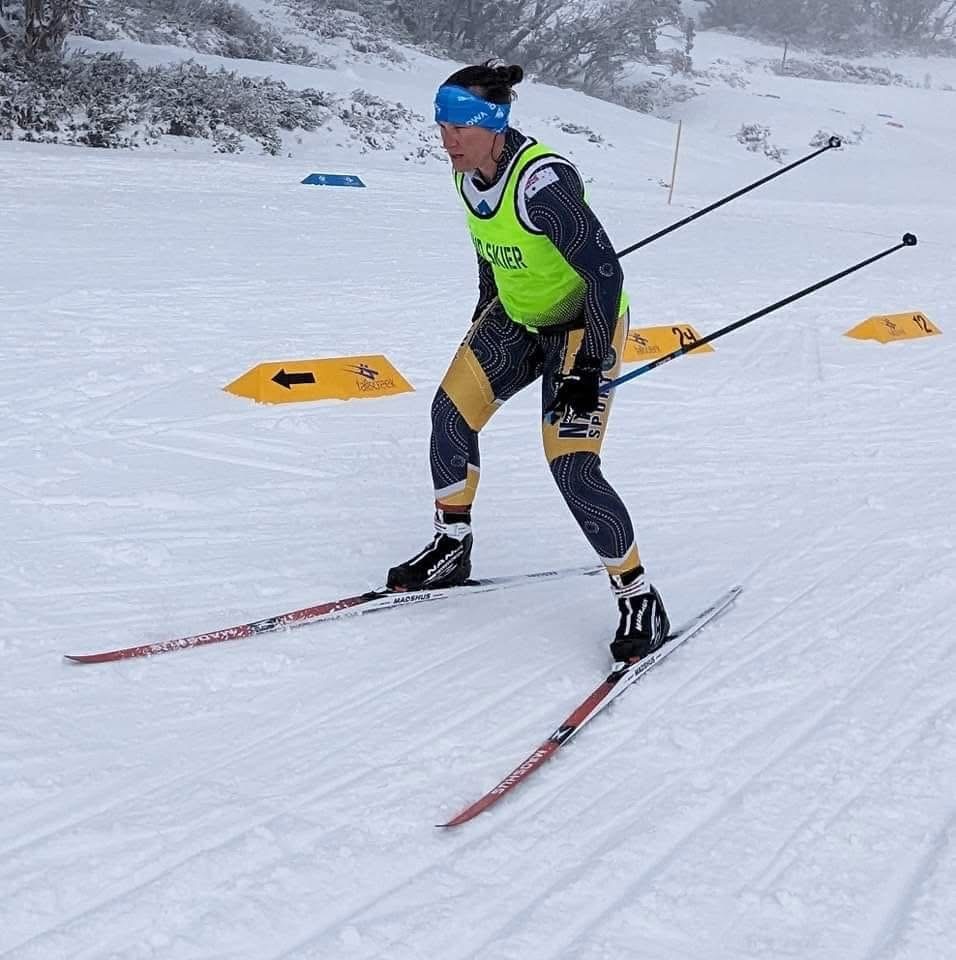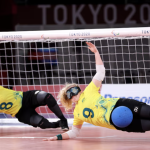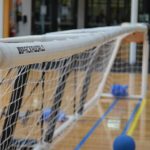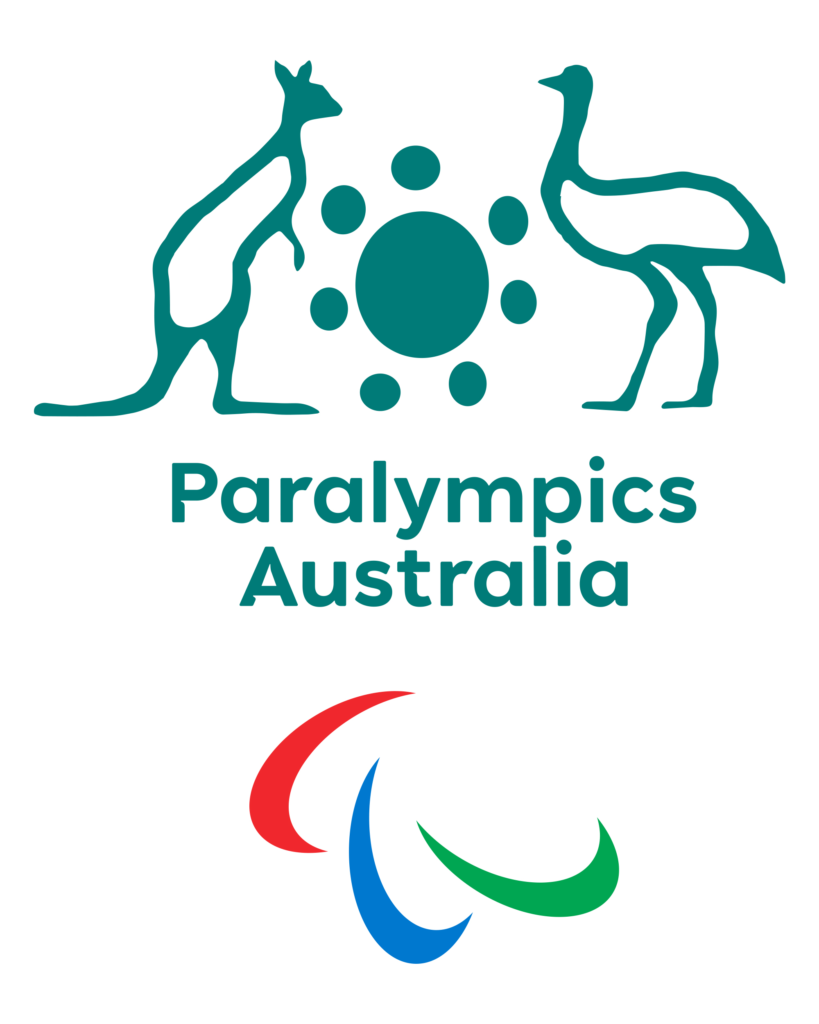Breaking New Ground: Taryn Dickens’ Para Nordic Journey

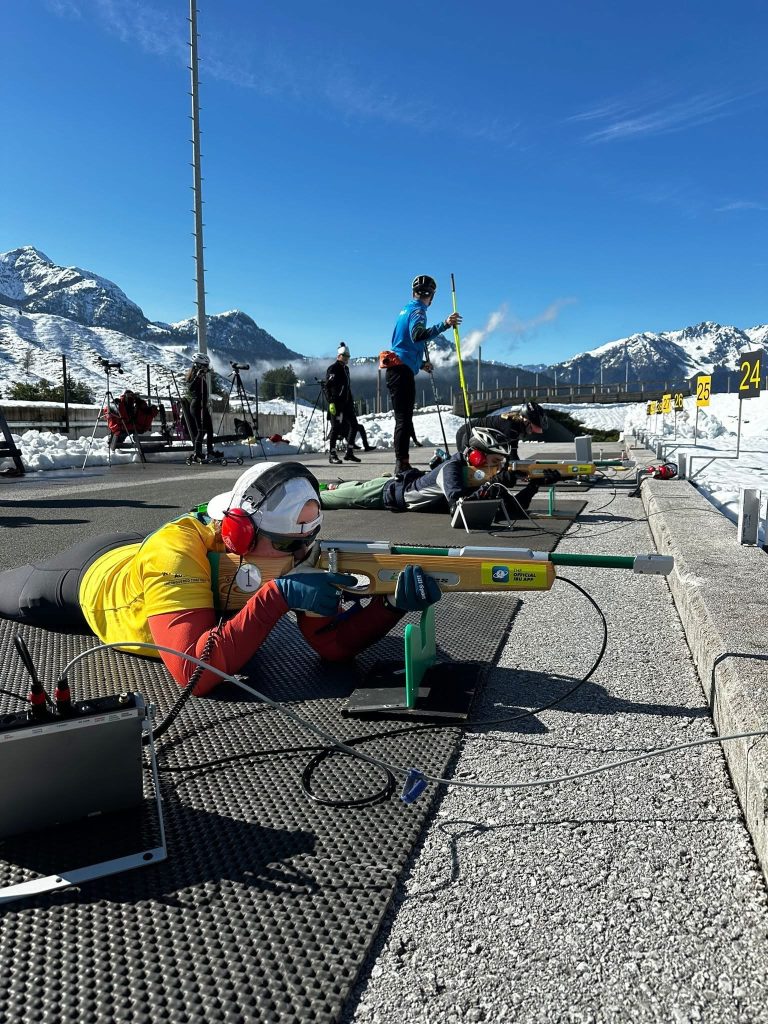
When Canberra’s Taryn Dickens first stepped onto skis in May 2022, she had no idea she would soon be breaking new ground for Australian Para sport. Within just two weeks of learning to ski, she took on the gruelling 42km Kangaroo Hoppet at Falls Creek—and finished it smiling.
“I was of the opinion that if I was still happy at the end of 42km then I was onto a good thing,” Taryn recalls.
Diagnosed with Cone-Rod Dystrophy in 2019, Taryn was already active in road and track cycling. But she wanted a fresh challenge, one that wouldn’t draw comparisons with her athletic life before losing her vision. From a military background, the sport of Biathlon caught her attention with its strong ties to military history and the Australian Defence Force, Biathlon sparked her curiosity and quickly, her passion.
A Pioneer in Para Nordic
Australia has never had a female Para Nordic athlete, nor a blind or vision impaired competitor, until Taryn. “After doing some research about the sport I realised that Australia had never had any female Para Nordic athletes … being a 40-year-old woman I also wanted to show other 40-year-old women that we can learn new sports and try new activities no matter how mature our bodies (but not our minds) may be.”
Her chosen discipline, Para Nordic, combines Para Biathlon (cross-country skiing and rifle shooting) and Para Cross Country Skiing. She thrives on the sport’s contrasts. “When you are skiing you are racing over the snow… then you come into the shooting range. With my heart rate high I need to relax and self soothe my body to be able to shoot accurately. I find this very similar to life in that skiing is fun and hectic… and then comes change and you need to settle and solve a problem.”
“Taryn’s determination and passion in pursuing her Para Nordic career is ground breaking. As the first Australian female, and vision impaired athlete, who is also over forty years of age – Taryn is changing community assumptions about what an elite athlete should be and raising awareness about inclusivity. Blind Sports Australia wishes Taryn all the best in her Paralympic preparations for Milano Cortina in 2026 – we can’t wait to see you compete on the world stage.”
— Felicity Wilkeson, BSA CEO
Finding Strength in Community
Taryn’s proudest moments haven’t come from medals, but from making connections. Training with groups like Achilles Running Canberra and introducing others with vision impairment to para sport at Paralympics Australia events has given her enormous joy.
“When you get a message from a parent of a child who has the same rare eye condition as yours after they have seen a clip of your sporting journey on social media, and they feel like their child can have a bright future… now that is what I am proud of and that is what makes life beautiful.”
Challenges and Resilience
Being self-funded and competing in a discipline with little para history in Australia has not been easy. Competiting internationally requires costly trips to the snowy Northern Hemisphere, and support from organisations is still evolving.
Yet Taryn has found a way through persistence and the right people. “Finding the right people for support has been a game changer… having the right conversations and opening minds both ways with sporting volunteers is happening. We have seen a big change at both the Biathlon Australia and Snow Australia Nationals this season with dedicated para racing now at both events.”
Losing her driver’s licence was another major hurdle to overcome, forcing Taryn to restructure daily life and training. But with the support of her wife Dee, and organisations like Guide Dogs Australia, she has reclaimed her independence. “By using my cane I can get myself to most places unassisted, so I have no excuse to miss training sessions.”
Inspired by Others, Inspiring Others
Taryn is quick to acknowledge the people who have lifted her up on her journey. From Canadian coach Kaspar and the Cranage family, to Achilles Running volunteers, Navy colleagues, and her wife Dee—she credits them all with making a difference.
“I am not an athlete or a person who can survive through it all alone. It is those all around me who make the impact on me.”
Creating Welcoming Spaces for Athletes with Vision Impairment
Taryn’s journey has shown her not only what’s possible on snow, but also the difference that inclusive, thoughtful sporting environments can make. Navigating new clubs and organisations herself, she knows that the smallest details can have a big impact in welcoming athletes with vision impairment.
“If I could make a poster to give a new club or organisation when I first made contact it would say – Please may I come in when it is a bit quieter for my first visit. It will be helpful for me to get my bearings without being over stimulated,” she explains.
Her advice to clubs is practical and centred on balancing the need for athletes’ independence, whilst still being there to provide meaningful support. “Get to know me before you feel like you need to make changes to environment or training. I may not actually need any changes to be made… we need to find a balance between being over cautious and letting me be independent but we will find this balance together.”
Taryn also highlights that simple patience goes a long way. New athletes may move a slowly at first while familiarising themselves with the environment. Allowing extra time and resisting the urge to step in unless asked, helps foster confidence and inclusion, and above all sport should be joyful.
Her reflections are a timely reminder that inclusion is not about making sweeping changes, but about building understanding, respect, and community – values that have carried Taryn through her sporting journey.
For more information about Para Nordic in Australia, please contact Biathlon Australia at info@biathlonaustralia.com.au
